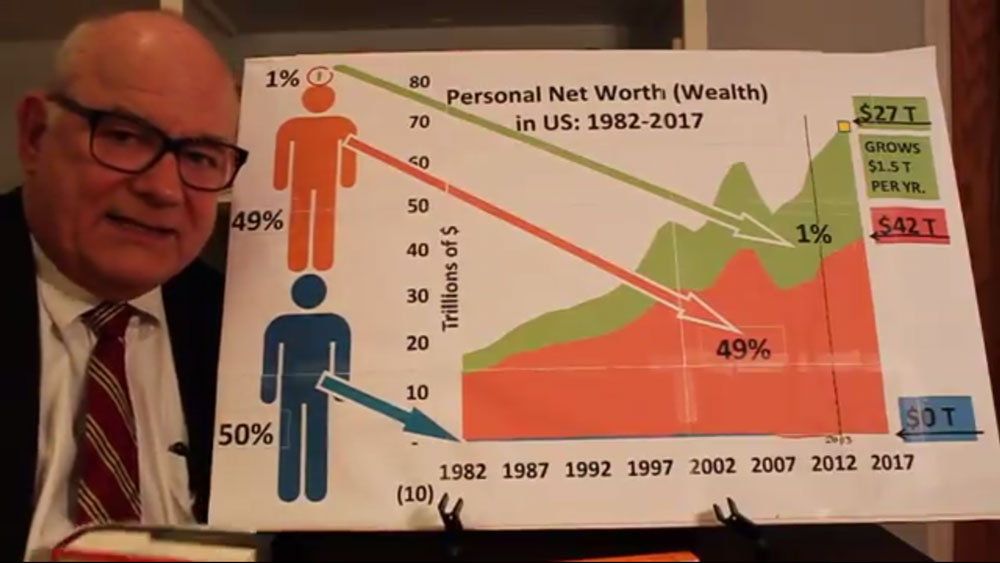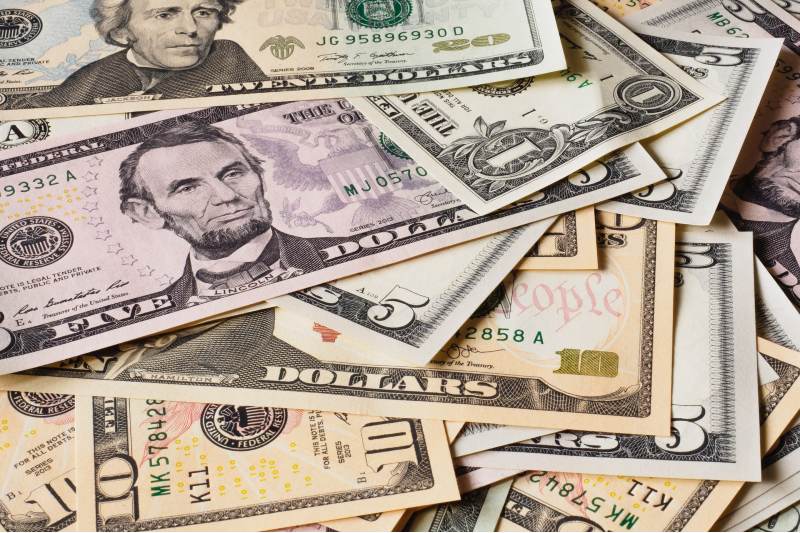Most of the problems in the world today are caused or made worse by the fundamental issue of wealth concentration in the hands of the few. According to the Credit Suisse 2017 Global Wealth report, the wealthiest 1 percent of the world’s people own as much personal wealth as everyone else in the world put together.
In the U.S., the 1 percent wealthiest owned 40 percent of all personal wealth in 2017, versus 25 percent in 1982. Let’s be clear: This kind of wealth concentration causes suffering. War, terrorism, the opioid epidemic, homelessness, unemployment, the breakup of families, crime and multiple refugee crises are all symptoms of the underlying problem of wealth concentration in the hands of the few.
For the last 50 years, few people have taken seriously this lesson from Dr. Martin Luther King, who said in his “The Other America Speech,” at Stanford University on April 14, 1967: “…It is a cruel jest to say to a bootless man that he ought to lift himself by his own bootstraps. … They find themselves impoverished aliens in this affluent society. And there is a great deal that the society can and must do if the Negro is to gain the economic security that he needs.
Now one of the answers, it seems to me, is a guaranteed annual income, a guaranteed minimum income for all people, and for all families of our country. It seems to me that the Civil Rights movement must now begin to organize for the guaranteed annual income. Begin to organize people all over our country and mobilize forces so that we can bring to the attention of our nation this need, and this is something which I believe will go a long, long way toward dealing with the Negro’s economic problem and the economic problem which many other poor people confront in our nation.”
I propose, accordingly, a People’s Dividend: a form of guaranteed income for all.
The People’s Dividend is a practical form of the idea that Dr. King proposed, and it can become a reality in a year or two if we elect politicians who are willing to enact a simple tax on wealth. Here’s how it could work: Congress would pass a law taxing the personal wealth of the richest 1 percent in the U.S. The tax would be equal to annual growth in the wealth of the 1 percent after they pay all of their other taxes and spend as much as they do now. In 2017, such a tax would have collected about $1.5 trillion.
The next step is simple: Have the IRS or the Social Security Administration distribute the $1.5 trillion to every adult and child in the U.S. who has a Social Security number or a taxpayer ID number. The payment would be tax-free and unconditional, meaning everyone gets it, regardless of how much or how little other income they had. Even the 1 percent get it. Because it goes to everyone, the People’s Dividend is a form of universal income.
The $1.5 trillion would give each of the 333 million people in the U.S. about $4,500 a year. For a family of four, that’s $18,000. The poverty level for a family of four is $24,000, so the People’s Dividend by itself gets them three-quarters of the way to the poverty line, every year.
The dividend is guaranteed to be paid only as long as the wealth of the 1 percent is growing. If their wealth declines in a given year because of stock market fluctuations, the tax would be reduced until their wealth had recovered to $27 trillion, where it is today.







